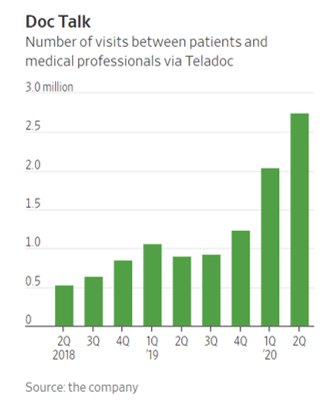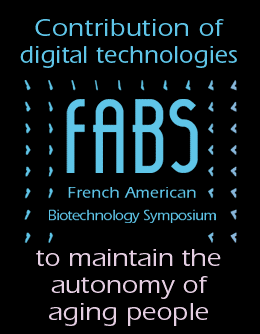Posts Tagged ‘telemedicine’
Update: The placebo effect works even when people know they are taking a placebo
Welcome to a new edition of SharpBrains’ e‑newsletter, featuring 14 research findings, resources and tips for brain health … and starting with this fascinating study: #1. Wow. The placebo effect works even when people know they are taking a placebo #2. Beating Alzheimer’s Disease will require a combined physical/ mental approach: From the ten factors found…
Read MoreDebate: How and when will the telemedicine surge reach mental healthcare?
Covid-19 Pandemic Drives Patients—and Deal Makers—to Telemedicine (The Wall Street Journal): The coronavirus pandemic has put the once-niche category of telemedicine in the spotlight and is now driving a flurry of deal activity involving virtual health-care providers … Patients have embraced virtual care as a way to stay in touch with doctors for urgent care or…
Read MoreDr. Michael Merzenich: To harness Neuroplasticity for cognitive enhancement, we need to think “Fitness” more than “Games”
(Editor’s Note: In order to help readers familiarize themselves with the work and thinking of Dr. Michael Merzenich, one of the winners of the 2016 Kavli Prize in Neuroscience for groundbreaking work on neuroplasticity, we are condensing and republishing the comprehensive conversation that Dr. Merzenich and Alvaro Fernandez had in 2009, in preparation for the inaugural…
Read MoreSurvey: Growing demand for digital psychotherapies to help veterans deal with substance abuse, depression, problem solving and insomnia
Veterans go for digital psychotherapy (Healthcare IT News): “Computerized psychotherapies, or CPTs, hold great interest for veterans receiving outpatient treatment, according to a study published in Telemedicine and e‑Health. The study, relying on information provided by 151 veterans receiving treatment in a Veterans Health Administration substance use disorder outpatient clinic, showed veterans were
Read MoreEmerging digital technologies to maintain autonomy and health
Quick heads-up: Interesting upcoming event (Oct. 25–26th) in Nice, France, organized by the French American Biotechnology Symposium, focused on “Contribution of digital technologies to maintain the autonomy of aging people,” and discussing innovation around telemedicine, medical devices in home care, bioengineering, neurostimulation, neural implants. The organizers want to engage French and American academic researchers, students,…
Read MoreMichael Merzenich on Brain Training, Assessments, and Personal Brain Trainers
Interview with Dr. Michael Merzenich, Emeritus Professor at UCSF, a leading pioneer in brain plasticity research. In the late 1980s, Dr. Merzenich was on the team that invented the cochlear implant. In 1996, he was the founding CEO of Scientific Learning Corporation (Nasdaq: SCIL), and in 2004 became co-founder and Chief Scientific Officer of Posit Science. He was elected to the National Academy of Sciences in 1999 and to the Institute of Medicine this year. He retired as Francis A. Sooy Professor and Co-Director of the Keck Center for Integrative Neuroscience at the University of California at San Francisco in 2007. You may have learned about his work in one of PBS TV specials, multiple media appearances, or neuroplasticity-related books.
Read More




